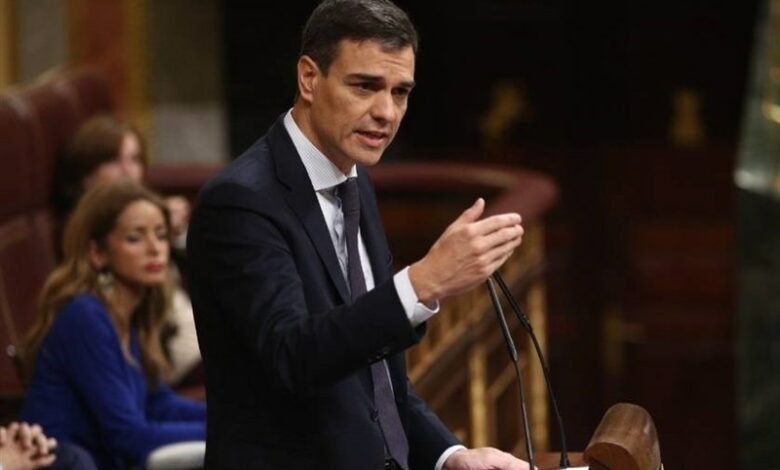The Spanish parliament rejected the Prime Minister’s plan to pardon the separatists

| "Pedro Sanchez", the Prime Minister of Spain, failed to approve the controversial plan of amnesty for the separatists of Catalonia in the Spanish Parliament, in exchange for which he received the support of the separatists to continue their power in Spain. |
According to the report of the international group Tasnim news agency quoting Spanish Prime Minister Pedro Sánchez’s controversial amnesty plan for Catalan separatists has failed in the Spanish Parliament, according to “De Sight”. The lower house in Madrid rejected the left-wing government’s bill and sent it back to the judiciary committee. The amnesty was one of Sánchez’s concessions to separatist Catalans in exchange for their support for Sánchez’s coalition government. Last November, Pedro Sánchez secured the votes of the separatist parties Younes and ERC for his re-election with this promise. and the right-wing populists who categorically reject this amnesty, but the representatives of the Yuntes party also voted against this project. The United party wants to change the draft law to ensure that no separatists are excluded from the planned amnesty.
Two judges in Spain in Currently, “Carles Puigdemont”, the former prime minister of Catalonia, and other separatists are being investigated for terrorism. If the current version of the draft is not changed, those affected by the investigation are at risk of being excluded from amnesty. This will inevitably jeopardize the stability of the left-wing government.
Carles Puigdemont’s Younes party, which has been living in exile in Belgium since the independence referendum in the fall of 2017. and Per Aragon’s leftist ERC party both want to separate Catalonia from Spain. Sánchez, of course, wants to prevent this and tries to neutralize these conflicts through dialogue and concessions to the separatists.
It is expected that the Justice Committee Will tackle this project again in a few weeks. If the “Institutional, Political and Social Normalization Law in Catalonia” removes this obstacle, the Senate will have to deal with it. The conservative PP People’s Party of Alberto Núñez Feijo, the leader of the opposition, has a majority there. They protested the planned amnesty for the separatists. Feijo said: This resistance will save Spain’s endangered democracy. He added: This project is a “disgrace” for the country. Their demands came to fruition, now they are faced with the increasing demands of these parties in a difficult and difficult situation. forces it to improve the controversial amnesty law so that former Catalan Prime Minister Carles Puigdemont can return to Spain from exile in Brussels without fear of arrest.
Opposition These conditions are known as blackmail. Spanish opposition leader Alberto Núñez Feijo never tires of accusing Sánchez of selling the country’s honor to win separatist votes. He regularly calls his compatriots for large demonstrations against the Sanchez government.
Observers believe that in this situation, the end of the current Spanish government led by Pedro may soon come. Sanchez will arrive. The amnesty law is expected to take effect at the end of April. Puigdemont then returns from exile and insists on Sánchez’s approval for another referendum on secession from Catalonia. Puigdemont and his colleagues have made this abundantly clear time and time again. But at this point, Sanchez’s hands are constitutionally tied. At most at that point, supporters of Esteghlal will probably withdraw their support and new elections will become inevitable.
Conservatives and right-wing populists in Spain accuse Sanchez. who wants to establish a “dictatorship” and endangers democracy, the separation of powers and the unity of Spain. That is why, according to them, the Spaniards should protest until new elections are held.
end of message/
| Publisher | Tasnim News |


